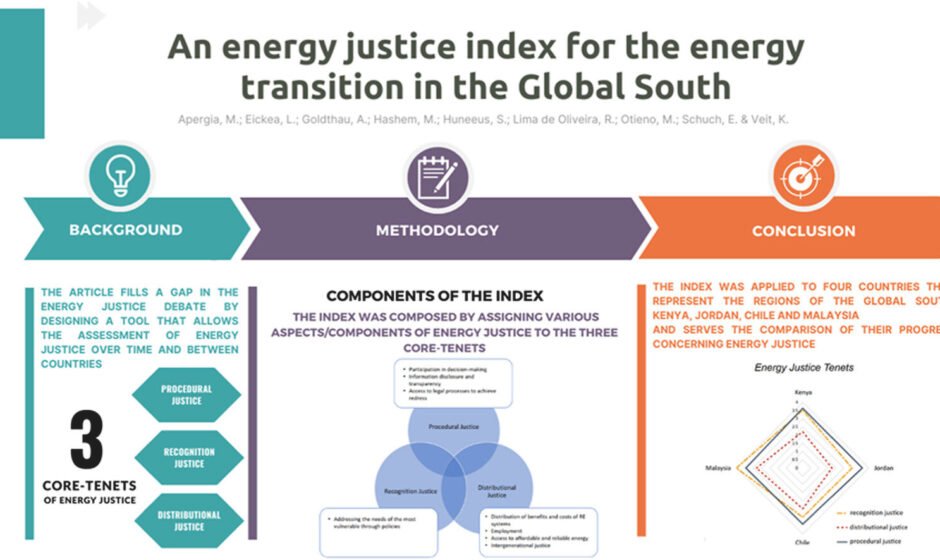Scientists from the Research Institute for Sustainability (RIFS) have developed a new approach to measure the incorporation of energy justice in the transition to a zero-carbon society in the Global South. The team, led by lead author Maria Apergi, created the first quantitative measure to compare the transition processes of different countries. The study, titled “An energy justice index for the energy transition in the Global South,” was published in Renewable and Sustainable Energy Reviews.
Energy justice refers to the fairness of energy systems, taking into account the social and development implications of energy technologies, policies, and projects. While previous studies have focused on assessing the justice implications of low-carbon transitions and renewable energy, this newly-developed index provides a framework for identifying injustices in energy processes and proposing solutions.
The index is composed of three core tenets of energy justice: Procedural Justice, Recognition Justice, and Distributional Justice. By assigning various components of energy justice to these tenets, the index allows for a standardized comparison of countries.
Interestingly, the ranking of countries based on the index does not always correspond to their level of economic development. For example, Malaysia and Chile scored higher in terms of distributional justice, while Kenya and Jordan scored higher in terms of procedural justice. Kenya also scored higher in terms of intergenerational justice and the distribution of costs and benefits of renewable energy infrastructure.
The researchers recommend that national governments and transnational players work towards establishing policy frameworks and strategies that systematically integrate justice concerns. This includes addressing due process in the design of energy systems, as well as access, affordability, and other distributional considerations. Policies to advance recognition justice through rural electrification programs and microfinancing are also recommended to protect vulnerable groups.
Economic instruments encouraging investment in renewable energies should also include social criteria, and policymakers could benefit from introducing monitoring, reporting, and data verification procedures for energy justice-related indicators to improve data quality and availability.
The energy justice index presented in this study will contribute to the discussion on energy justice and enable assessments of energy justice over time and between countries. With its wealth of data and online accessibility, the index can become a valuable tool for researchers and decision-makers in their efforts to systematically study and improve energy justice in the Global South and beyond.
For more information, the study can be found in Renewable and Sustainable Energy Reviews, with the DOI: 10.1016/j.rser.2023.114238.
Provided by the Forschungsinstitut für Nachhaltigkeit Helmholtz-Zentrum Potsdam.




